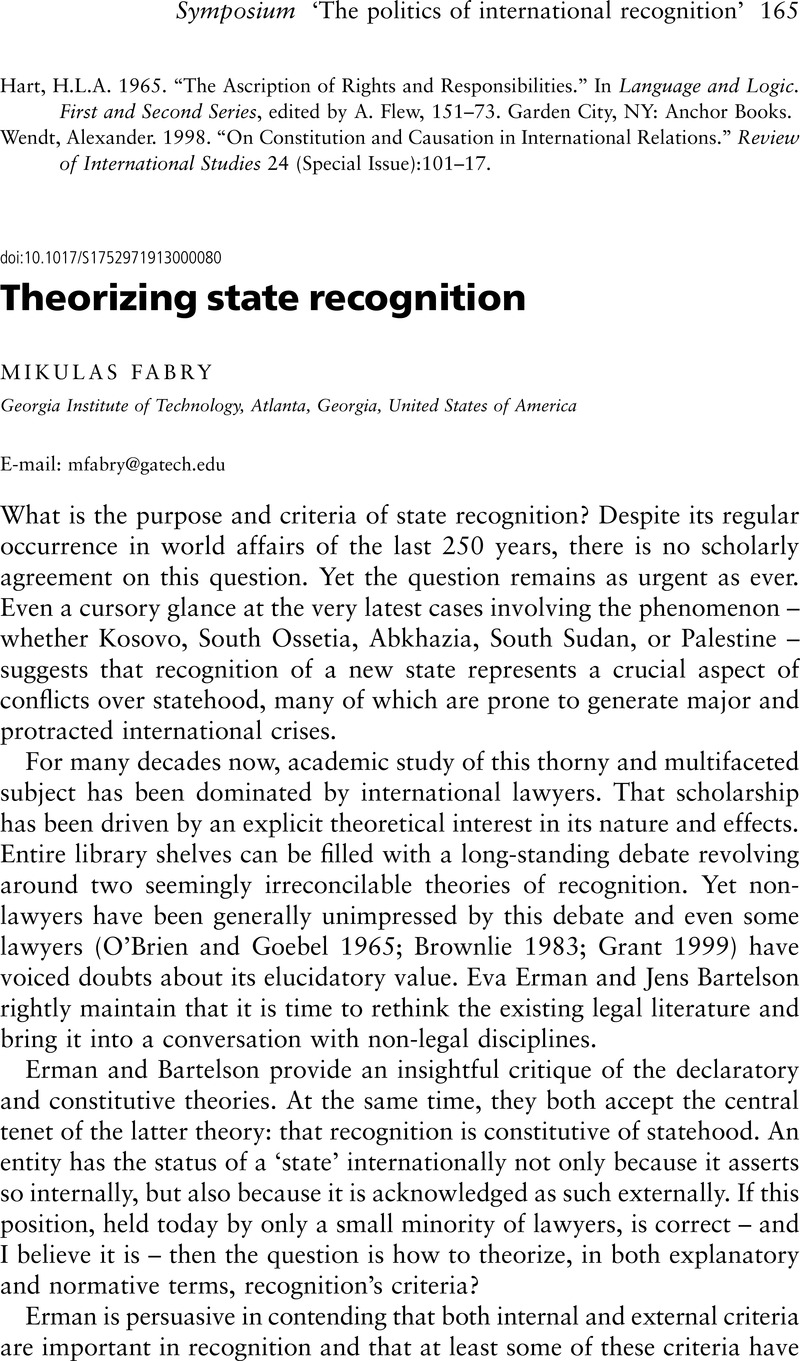Crossref Citations
This article has been cited by the following publications. This list is generated based on data provided by Crossref.
Goerzig, Carolin
and
Hofmann, Claudia
2015.
Recognition in International Relations.
p.
237.
Gallagher, Julia
2016.
Creating a state: A Kleinian reading of recognition in Zimbabwe’s regional relationships.
European Journal of International Relations,
Vol. 22,
Issue. 2,
p.
384.
RIEGL, MARTIN
and
DOBOŠ, BOHUMIL
2018.
Power and Recognition: How (Super)Powers Decide the International Recognition Process.
Politics & Policy,
Vol. 46,
Issue. 3,
p.
442.
Grzybowski, Janis
2019.
The paradox of state identification:de factostates, recognition, and the (re-)production of the international.
International Theory,
Vol. 11,
Issue. 3,
p.
241.
Hsieh, Pasha L
2019.
The quest for recognition: Taiwan’s military and trade agreements with Singapore under the one-China policy.
International Relations of the Asia-Pacific,
Vol. 19,
Issue. 1,
p.
89.
Knotter, Lucas
2021.
Why declare independence? Observing, believing, and performing the ritual.
Review of International Studies,
Vol. 47,
Issue. 2,
p.
252.
Kanellopoulos, Anastasios Nikolaos
2022.
Recognition and Non-Recognition of a State Resulting from Secession: Case Studies of Annulled Status of the Turkish Cypriot Entity after its Declaration as "Turkish Republic of Northern Cyprus" and Kosovo.
HAPSc Policy Briefs Series,
Vol. 3,
Issue. 2,
p.
94.
He, Tian
and
Magcamit, Michael
2024.
The CPTPP, cross-strait tensions, and Taiwan’s recognition for survival strategy under the democratic progressive party.
International Relations of the Asia-Pacific,
Vol. 24,
Issue. 2,
p.
217.


